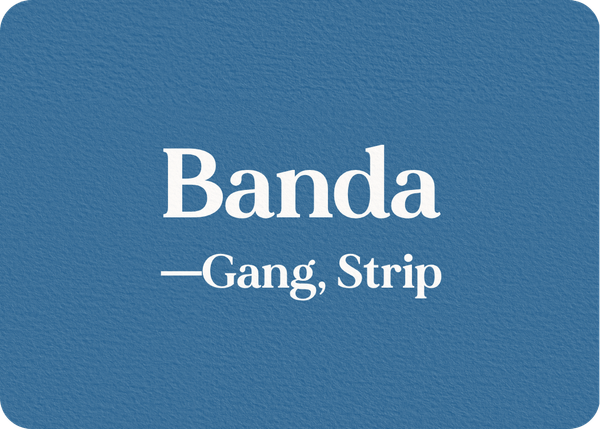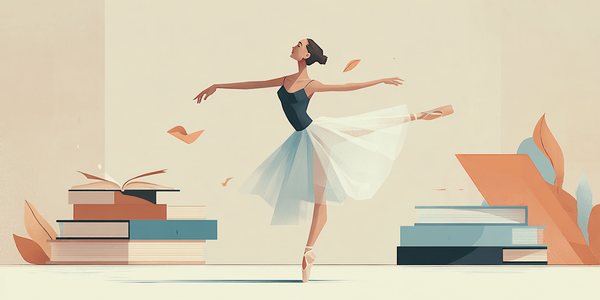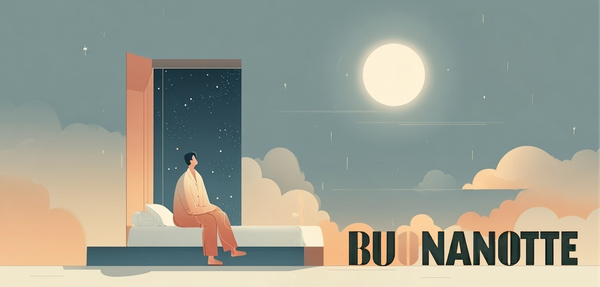Banda
NOUN [feminine]
Meaning and English translation 🔖
1. Band, Group
🇬🇧 A group of people united for a common purpose, especially in musical or criminal contexts.
🇮🇹 Gruppo di persone unite per uno scopo comune, specialmente in ambito musicale o criminale.
2. Strip, Band
🇬🇧 A strip or belt of material, often used for binding or decoration.
🇮🇹 Striscia o fascia di materiale, spesso usata per legare o decorare.
| Masculine ♂️ | Feminine ♀️ | |
|---|---|---|
| Singular | - | la - una banda |
| Plural | - | le - delle bande |
Example sentences 💬
La banda del paese suona ogni domenica in piazza.
The town band plays in the square every Sunday.
La polizia lotta contro le bande criminali.
The police fight against gangs.
La banda magnetica della carta di credito si è rovinata.
The magnetic stripe on the credit card has been damaged.
This article is brought to you by Giulia School, where you can learn Italian the natural way—with real conversations and passionate teachers guiding you every step of the journey. It’s the closest thing to immersion you can get without living in Italy. Click here to learn more.
Where does the word banda come from? 🔎
Banda comes from the Gothic word bandi, meaning "tie" or "bond". The Indo-European root is badh or bandh, meaning "to bind". This root is found in many languages:
- German Band
- English bind
- Sanskrit bandha "Band"
It originally referred to a strip or band used for tying or supporting something. Over time, the meaning extended to indicate a group of people united for a common purpose, such as playing music or fighting.
Did you know that... 🤓
Impress your italian friends with curious facts about Italy and its culture
Sarabanda: a musical band and a band of misfits (plus a blindfolded one).
Today, I could have written about La Banda Bassotti (the Beagle Boys), Ivano Fossati's song La mia banda suona il rock (My band plays rock), or why in Italian cities you find streets called Bande Nere (Black Bands - it's related to the Medici). But I couldn't miss the chance to tell you about a piece of Italian (trashy) culture that marked an entire generation.
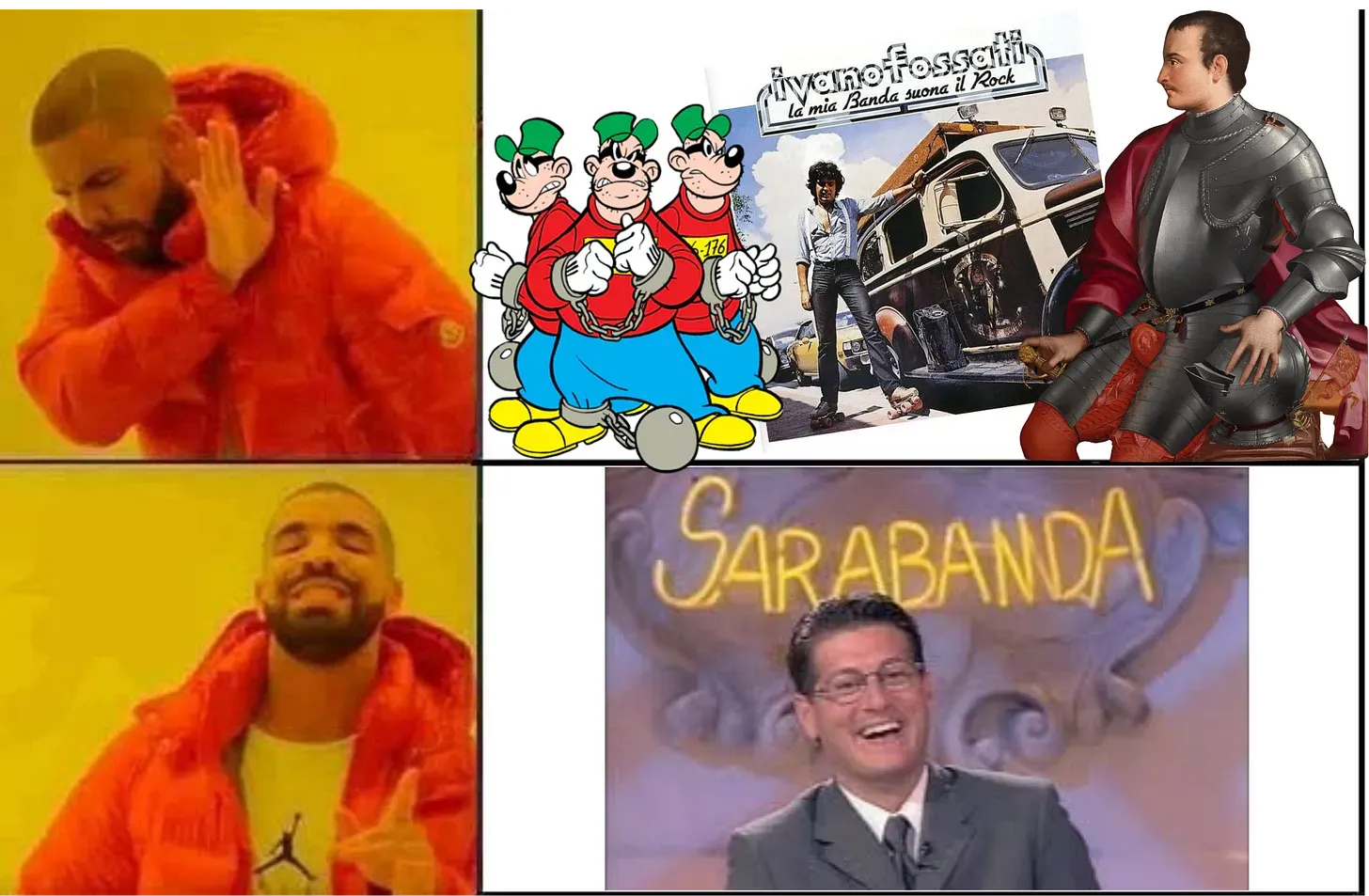
It was 1997. Italia 1, the Mediaset channel dedicated to youth and entertainment, decided to launch a new music quiz format based on the American show "Name That Tune".
And then he enters the scene, the inimitable Enrico Papi. With the energy of a thousand coffees and the enthusiasm of a child at Disneyland, Papi transforms each episode into a musical rodeo. "IL GIOCO DELLA MOOOSECA" (THE GAME OF MUUUSIC) becomes the battle cry of an entire generation.
And the contestants? Oh, the contestants. Real characters with their names and nicknames. There was Valentina, the blind contestant with an ear so fine she made Beethoven seem like an amateur. There was Coccinella (Ladybug, Marco Manuelli), seemingly an average person, who turned out to be a jukebox ready to devour gold tokens (in Italian game shows, you won gold coins that had to be converted into cash). There was Max (Giulio De Pascale), who appeared blindfolded like a superhero to avoid being recognized. And then there was Uomo Gatto (Cat Man, Gabriele Sbattella), the perfect incarnation of the absurd contestant that only Sarabanda could produce, a factory of moments that would become memes before memes were even a thing.
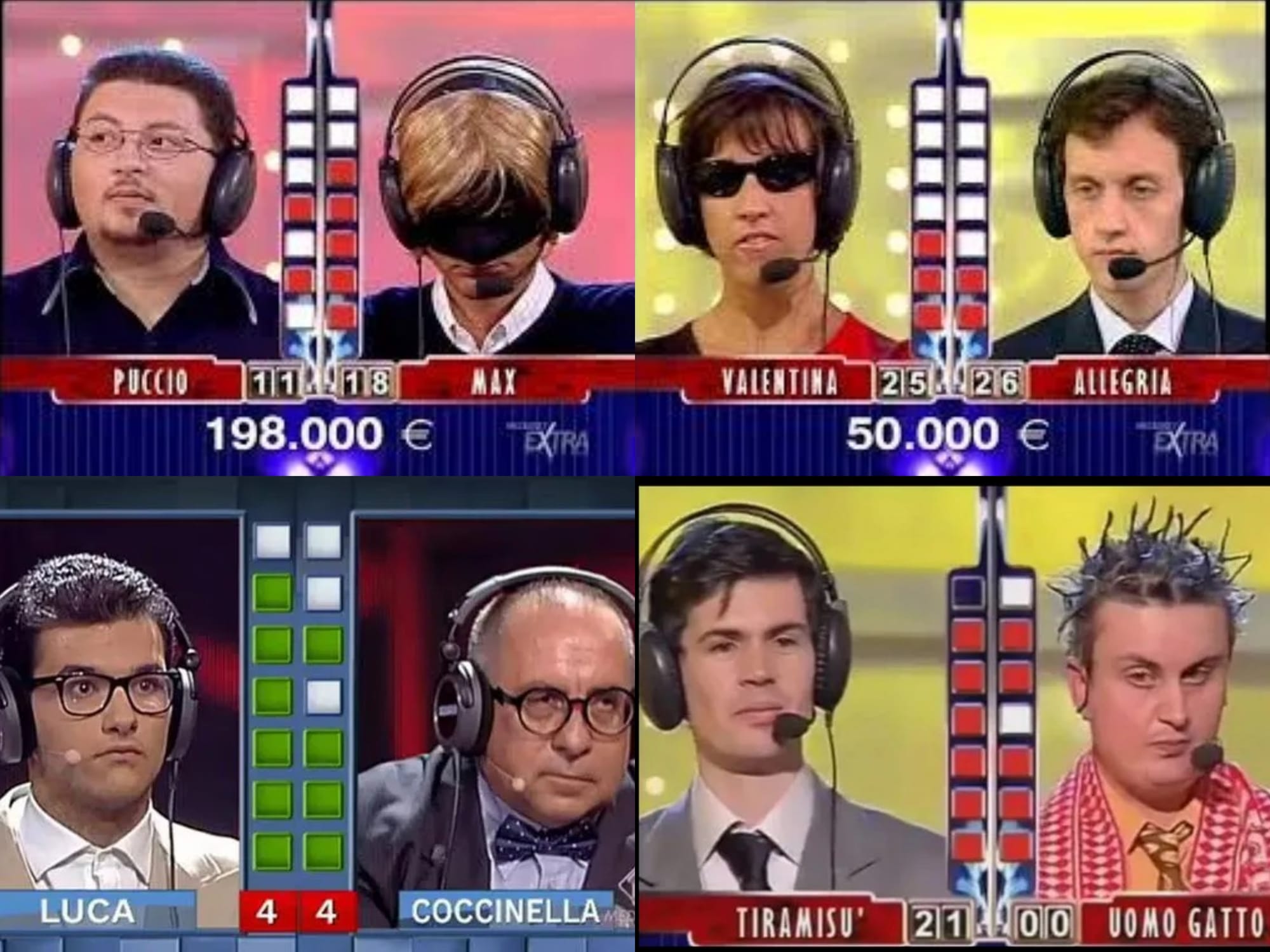
But the real stroke of genius? The phrase "La indovino con una!" (I can guess it with one note!). Four words that encapsulated the entire essence of Sarabanda: the arrogance, the challenge, the temporary glory of recognizing a song after a single note. It was our "Veni, vidi, vici," and you can still hear it in Italy today.
Sarabanda wasn't just a quiz show. It was an arena, a circus, a musical playground where the line between genius and madness was thinner than a violin string. It was the place where Italian pop culture showed itself in all its glorious, absurd beauty.
And us? We were there, glued to the screen, shouting answers, laughing, despairing for the contestant we had grown fond of and who, after one, two, or three months, would lose and make way for the next one.
Sarabanda did more than entertain us. It made us discover new music, appreciate the classics, and feel like music experts. It transformed music from background noise to the protagonist of our evenings.

